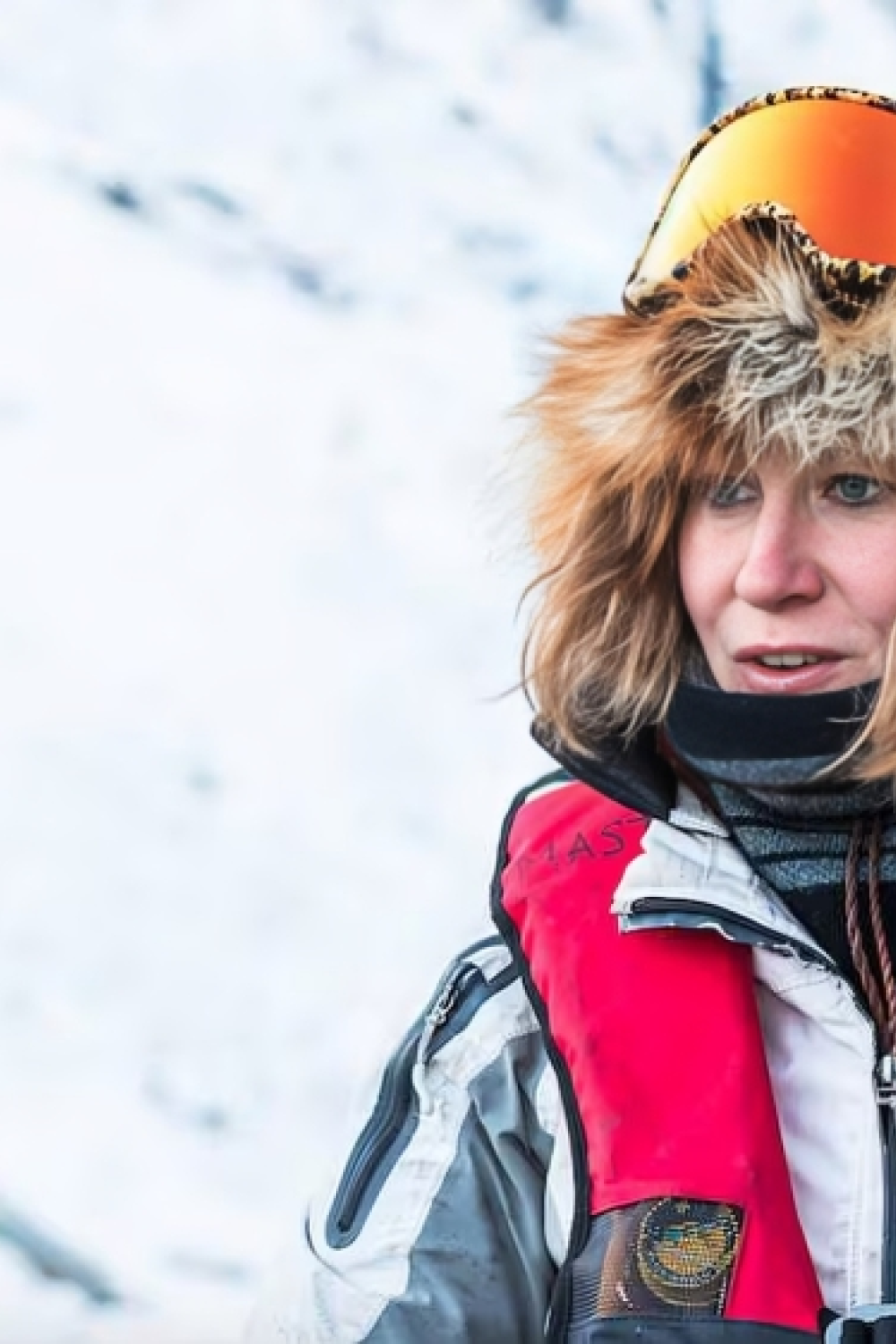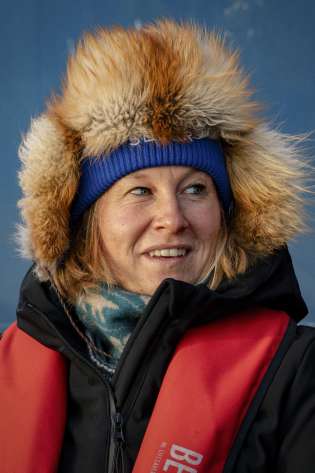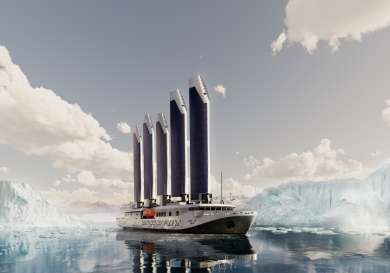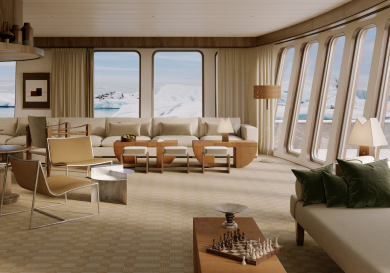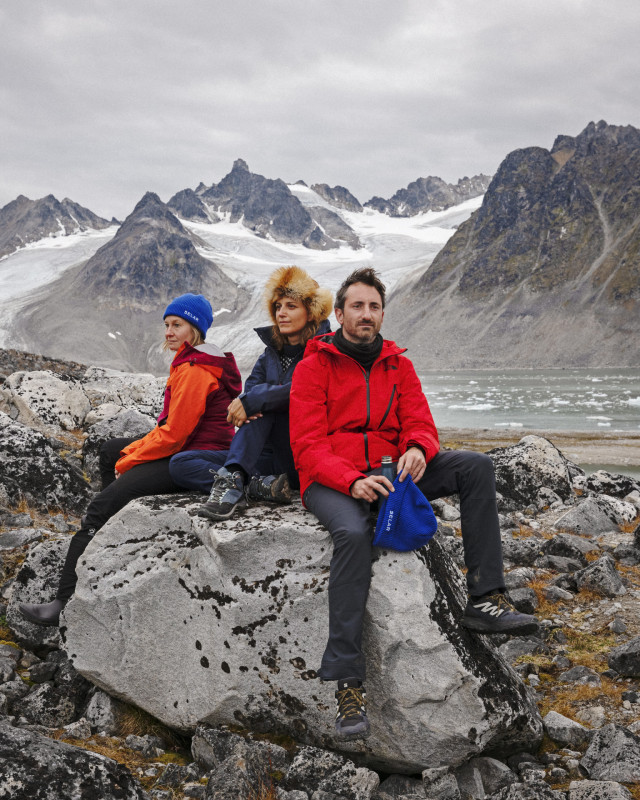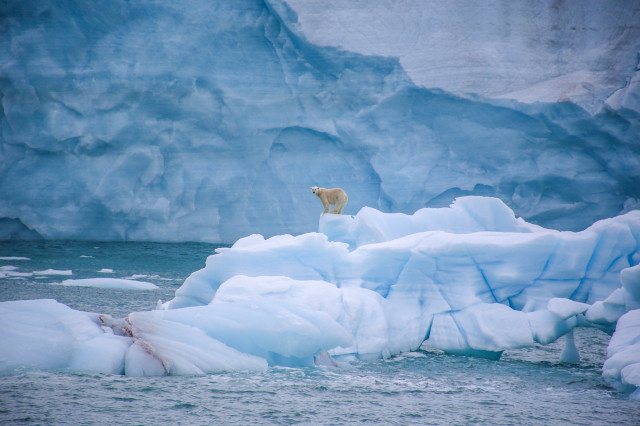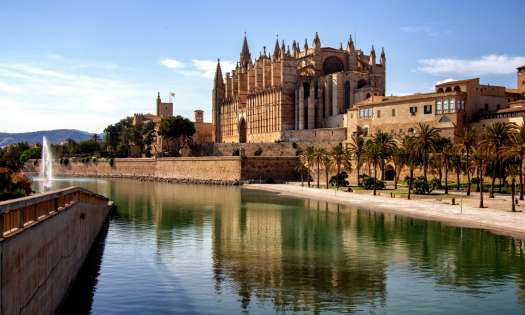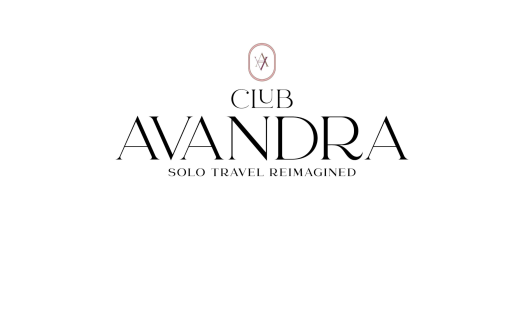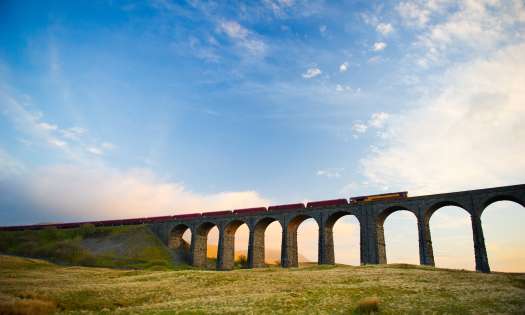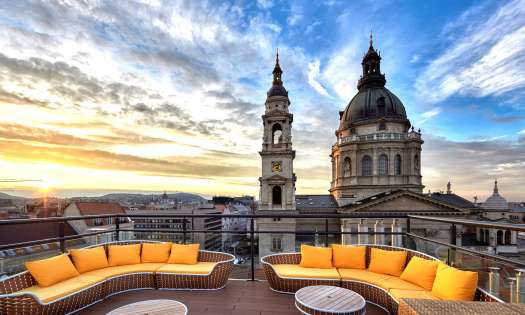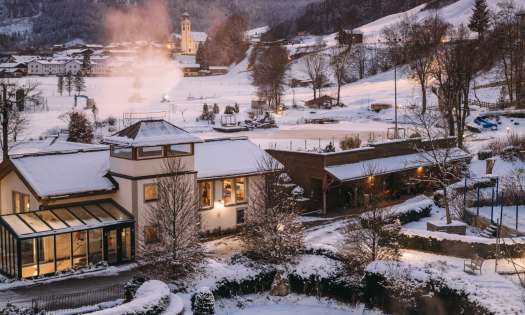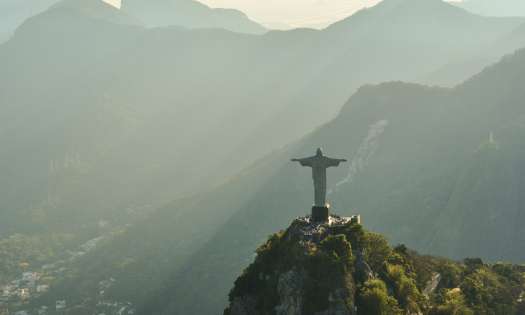Galvagnon’s Arctic cruise is bringing the spirit of adventure back to polar tourism.
The Arctic is objectively one of the most impressive places on earth. Awe-inspiring icy landscapes, magnificent wildlife and fascinating Indigenous groups are just a few of the area's selling points... and nobody understands its magic better than Sophie Galvagnon.
The celebrated maritime explorer is on a mission to revolutionise the polar tourism industry. She, alongside two others, have founded expedition company Selar, which is currently building a close-to-zero-emission sailing vessel. Powered by sun and wind, five sails are covered in 20,000 solar panels, saving 90% CO2 compared to most cruise ships currently operating in the region.
With expeditions set for Norway, Svalbard and Greenland in 2026, each destination offers something different. Their commonality is that they are all fragile ecosystems in need of preservation. With no set itineraries, Galvagnon describes each expedition as ‘experientially unique and sustainable’, with adventures wholly tailored to the whims of the natural environment.
Below, we chat to Galvagnon about the inspiration behind Selar and her admirable mission to protect the corner of the world she loves so much.
Firstly I'd love to get some background on you - what has your working life entailed and how did you come to be an arctic captain?
I'm a captain by trade, so I'm lucky to be half French, half Swedish, and I did part of my studies in France. But quite quickly I had this crush on ice navigation, so in 2008 I jumped on a cruise ship that went to Antarctica. I didn’t really like the mass cruise industry, so I went back to Sweden to the Swedish state icebreakers for research and commercial ice purposes. Then during summer there was less ice, so I jumped on Arctic expedition ships because they were often looking for experienced captains - that’s how I discovered Svalbard, where it's a bit less about only ice and a bit more about adventure and exploration. There is where I learned that there were still uncharted areas on Earth. I was sailing almost 10 months a year which is quite a lot, and I did my first step as a captain on those ships which was quite bold as I was only 26.
I did 5-6 years nonstop on different kinds of ships, but I never found the perfect match with both the sailing and the expedition aspects. I got more and more frustrated about this gap that was rising between what the ships were doing and climate urgency.
You’ve spoken about smaller ships offering more intimate travel experiences compared to big cruise lines which carry hundreds of passengers - can you talk through some of the unique selling points of the expeditions?
Today, luxury is all about experiences. There are only 36 passengers onboard, which gives the possibility to have really tailor-made experiences and a strong connection with the humans on board. The smaller size of the ship makes it possible to go where the other ships don’t.
I created Selar when I started thinking about the current options. Most ships are either small in size but really sparse on board and not that sophisticated, or they’re too massive to be tailor made. From this frustration, Selar was born.
You worked with two other entrepreneurs on this project - what was it like coming together to create Selar?
I was convinced that to bring something disruptive, I had to find mindsets from other industries. Through common relations, I met Quentin and Julia. Their background is in the startup food tech industry, so nothing to do sailing. Despite this difference, we have a shared passion for entrepreneurship and we also enjoy challenges. We like to have the ambition of being bold and giving change to new models.
The ship is set to navigate the “most remote, pristine parts of the globe - what makes these parts of the world so special?
The Arctic is my second home and my passion, so it was quite natural to start with that. There are no other places on earth where you can feel like you’re on another planet. It's so disruptively different from anything else, and it's so disconnecting. There’s also quite an urgency in bringing an alternative to this growing market, especially in these fragile environments.
How did the idea of early explorers and wind-powered ships inspire the creation of Selar?
All polar geeks and polar experts read a lot about our ancestors because it's inspiring. When I was looking into alternatives, I was obsessed with the idea that they succeeded in doing it when everything was much more simple, but the adventure was much more bold. That’s what got me thinking that today, in the 21st century, there must be a better solution.
What was the experience like of disrupting a very traditional industry?
It's not easy to be a new player in a market where you have these giant dinosaurs, so that was quite a challenge. It's a really old fashioned industry, so every time you try to give new input, the most common response is, ‘but why should we change?’ When you do things differently, you have to convince people that it's the way the future should be.
The maritime industry seems quite male-dominated. Have you found this to be true?
Most of the time I was a solo female on board, and sometimes a solo European, too. It’s very male-dominated, but it’s slowly improving.
I was looking at a report two days ago which said there are just1.3% women in the whole maritime industry. They actually said this was good, because five years ago it was only 0.45%.
We (Selar) will also try to have some impact in raising awareness in schools that the maritime industry is open for women. I think the shipping industry has connotations that it’s not accessible to women, so it’s important we change that image.
What does a typical day look like for you?
It’s a bit manic right now because I’m dealing with the small, technical details of the ship while also making commercial deals and managing my team, but I like it. Sometimes it's very operational and very detailed and sometimes it's really high level, but I enjoy the change in it; I'm not sure I would be happy just doing one thing.
When I'm on board, I’m waking up very early even if I’m not on watch. It’s a privileged moment when you’re alone to have that contemplation. When the day starts, we’ll have a team meeting, and we try to make sure every day is different with some kind of non-routine element. My favourite part is when we have a plan for the coming day and it doesn't happen the way we thought it would. It's always exciting to change things around.
Are there any mantras/outlooks which have helped you through challenging times?
There's one I particularly like — it's from my favourite explorer, an origin explorer called (Fridtjof) Nansen. He's like the father of modern exploration. He said ‘what's difficult takes a bit of time, and what's impossible takes a bit more time.’
What do you hope the impact of Selar is on the polar tourism industry?
My hope is that we'll be the leader of a shift within this industry and prove that it's possible to do it. Before Tesla, nobody was accelerating into electric cars, and once they proved that it was possible, the global sector shifted into it. I hope what we're doing will be inspiring to others, too.
https://selar.cc/
